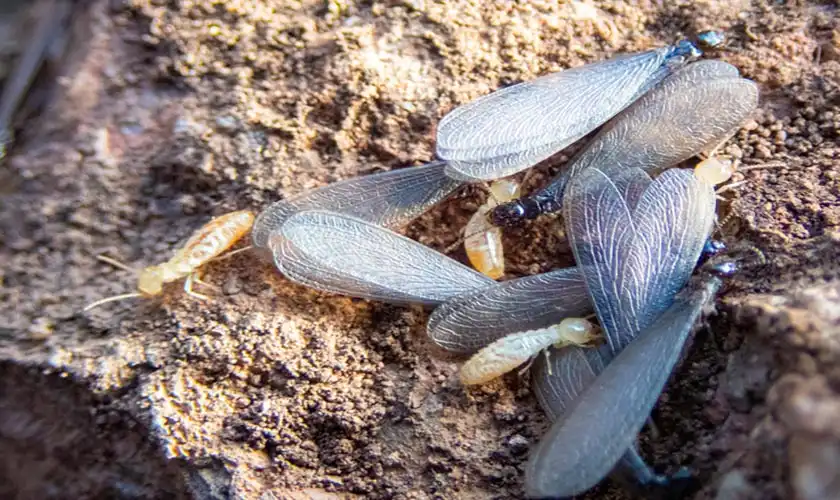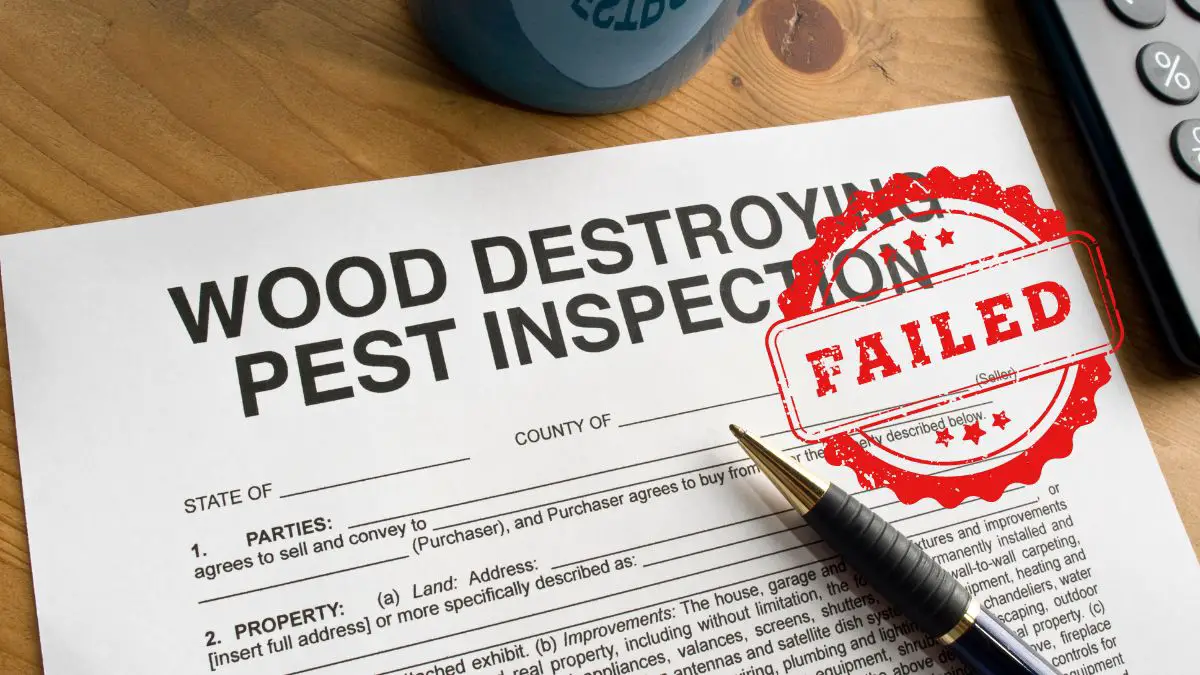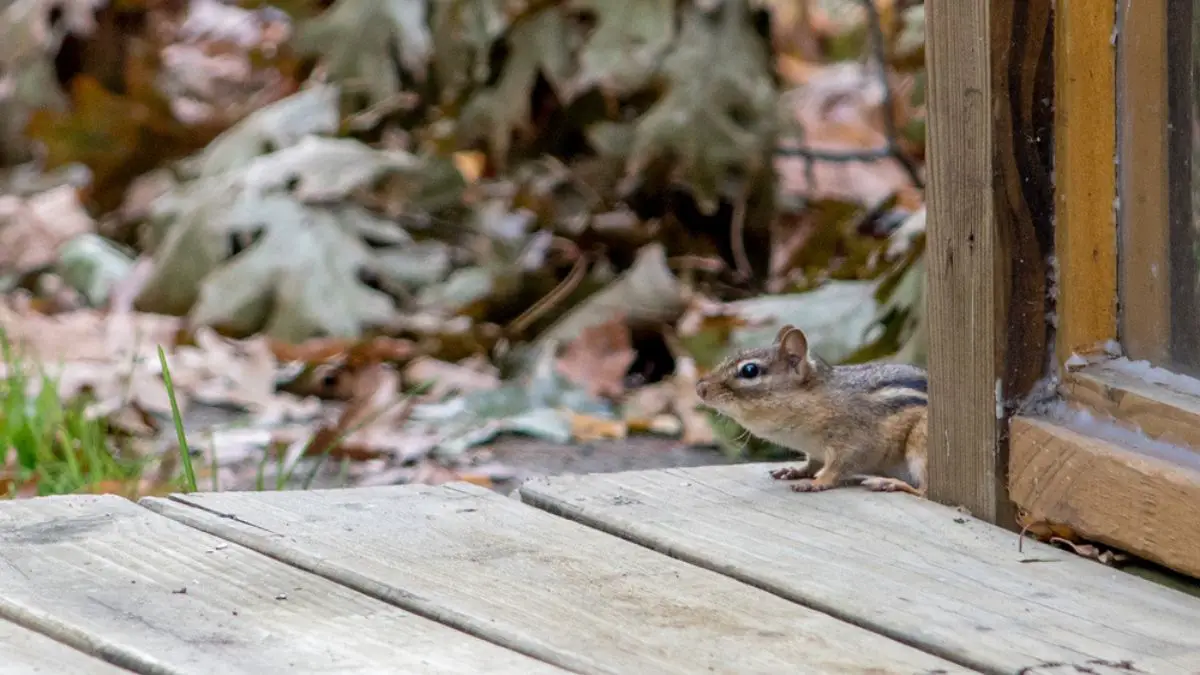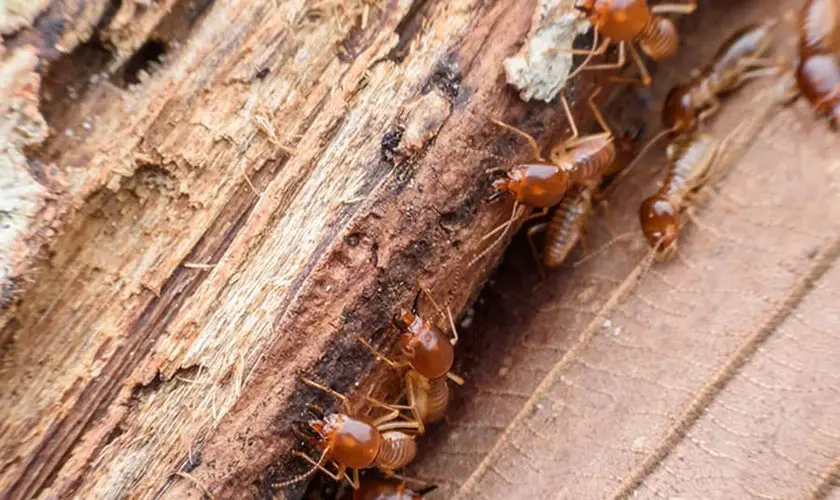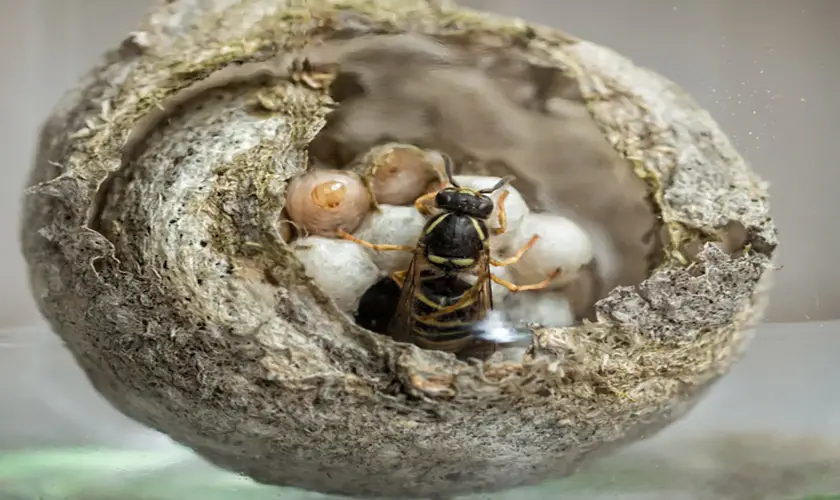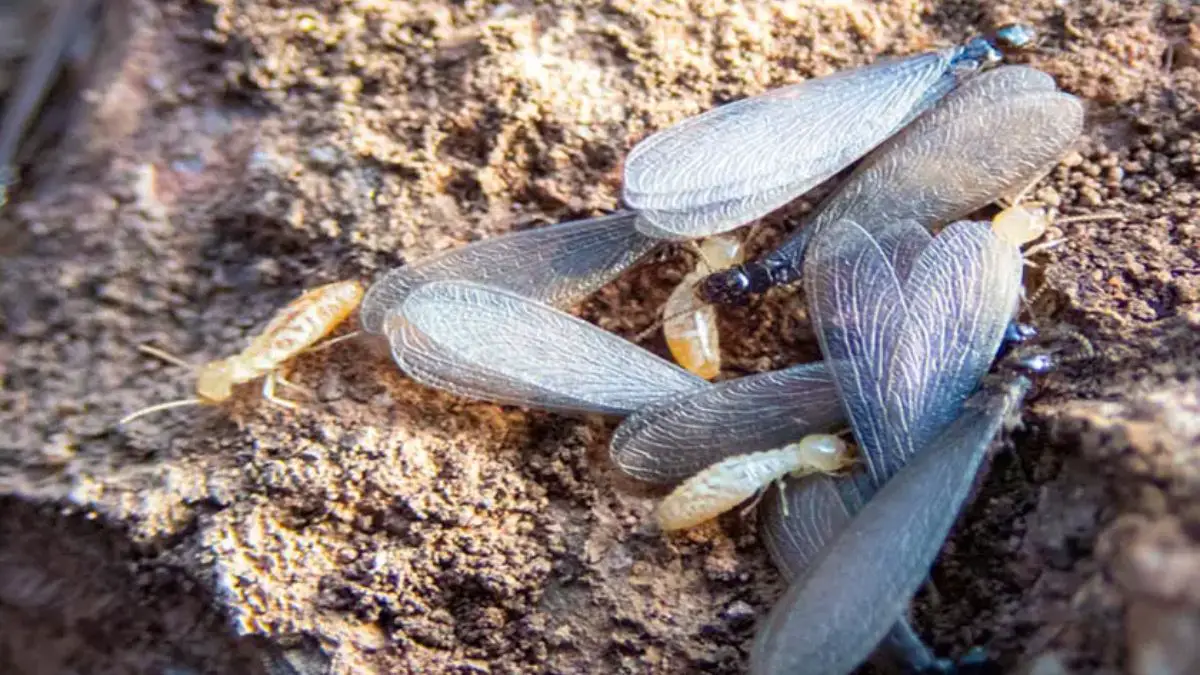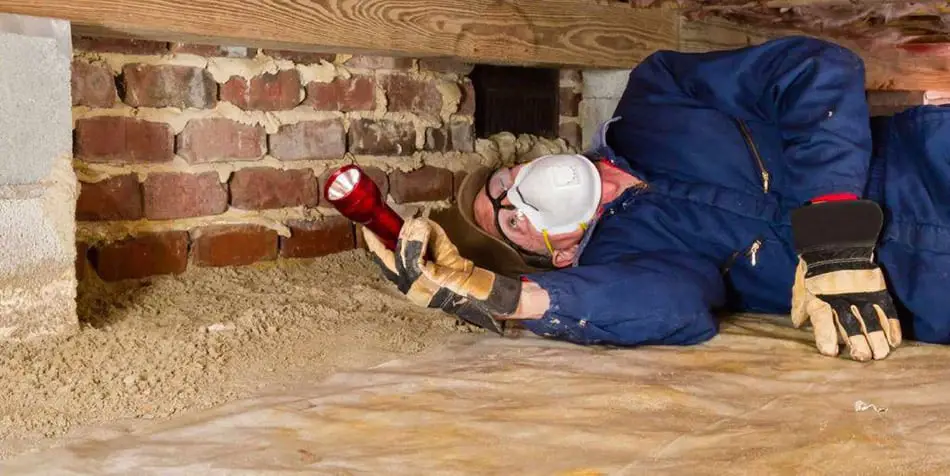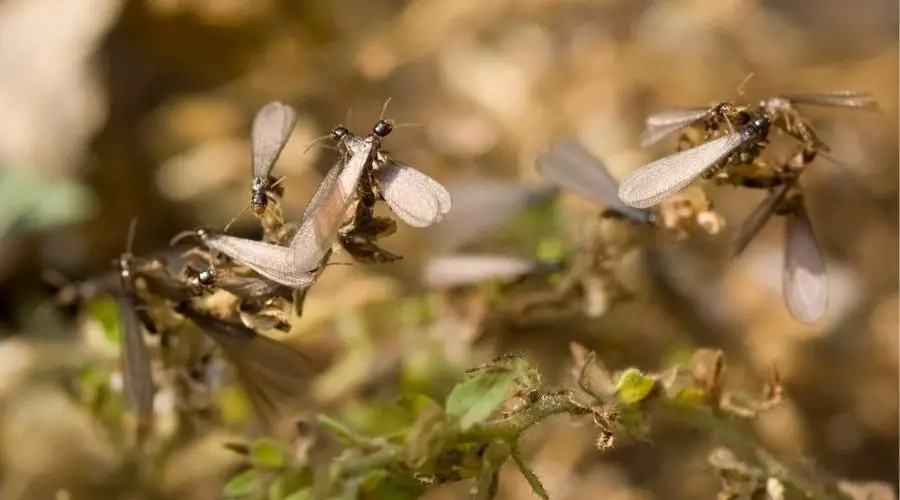
In the more recent years, many homeowners have opted to use natural remedies to kill or get rid of certain insects and pests. In this case, you might wonder what a natural or home remedy is to eliminate termites and what can help you with termite control.
Termites are a nuisance and cost homeowners and business owners $2 billion a year in structural damage and nearly $5 billion in preventative measures in the United States alone.
So you can see how they pose a threat overall. So, how can you get rid of them altogether? Here are 24 home remedies for all types of termites.
Get FREE quotes from licensed pest control technicians in your area today. Whether you need a termite inspection or a full treatment, We Can Help! All technicians are screened, licensed, and insured.
Home Remedy for Termites
1. Vinegar & Lemon Juice Mixture
You can use vinegar for almost anything, as it is a natural cleaning agent for your home. One of the best parts about vinegar and lemon is that it’s a natural termite killer.
All you need to do is mix half a cup of vinegar with the juice from two lemons.
Afterward, put the mixture in a spray bottle to eliminate these pests. Make sure to spray it in the areas where termites are most present.
In doing so, the acidity of the lemon juice and vinegar will kill the white ants on contact. Spray this mixture around window and door frames, porches, etc to ensure you got everything entirely.
This natural method won’t kill entire termite colonies and doesn’t provide the protection of a preventative termite treatment that targets subterranean termites that build colonies deep underground.
2. Orange Oil
Orange oil does the trick for the beginning stages of a termite infestation.
Orange oil is toxic to white ants, so drill holes to get them into the tunnels. You’ll want good coverage in reaching the termites inside their mud tubes. Some mud tubes can be deep inside the wooden structures.
Depending on your skills and the severity of the problem, you may need a technician to provide professional help. Above is a video explaining this method a bit more.
3. Clove Oil
A 2001 study shows that clove buds were the most toxic, killing 100% of termites in two days at 50 micrograms/cm2.
You can place a few drops of clove oil in spray bottles and spray the affected areas.
4. Cinnamon Oil
Cinnamon oil has many uses aside from getting rid of termites.
Cinnamon oil kills termites and prevents further infestations from happening. Plus, cinnamon oil keeps roaches and shellfish away.
5. Peppermint Oil
Although many people enjoy the scent of mint, most insects and pests despise it because of its strong smell.
White ants get deterred away from peppermint oil, just like they do with other essential oils mentioned above.
There are two ways you can go about using mint oils:
- Soak cotton balls in oil and water: After all the oil gets absorbed into the cotton balls, place them in areas where termites go. Check to make sure all of the holes get blocked off entirely. Once the cotton ball dries completely, use a dropper of water and the mint oil to replenish the scent.
- Make a spray: Fill an empty spray bottle up to the top but leave two inches of space to shape. Then, add 2 tbsp and shake vigorously. Afterward, spray everywhere the areas are infected inside and outside. If it rains, you’ll need to apply it more often. Otherwise, use the mint mixture once a month.
6. Eucalyptus Oil
You can use eucalyptus oil anywhere termites are. Since they damage crops, you might want to consider spraying eucalyptus around your gardening areas.
7. Neem Oil
Neem oil does not immediately get rid of termites, so you will have to apply this method daily until they go away. Otherwise, they will reproduce.
However, neem oil hinders white ants’ ability to shed their skin or lay eggs, stopping their reproduction. Therefore, it makes the population growth stop, keeping termites away.
8. Wet Cardboard
Nobody would think that damp cardboard makes termites go away, but this is a highly affordable way to get rid of these creatures.
Build a cardboard bait trap by spraying them with water. You will want to use three of four pieces but use more.
Afterward, pile the cardboard pieces together and put them near your furniture.
Due to its dampness, the termites will get attracted to this because of cellulose in cardboard.
Once you attract enough termites, dispose of the cardboard. However, we highly recommend burning them to ensure they do not return to your home.
Make sure to seal off any access points to your home to ensure none make their way back inside.
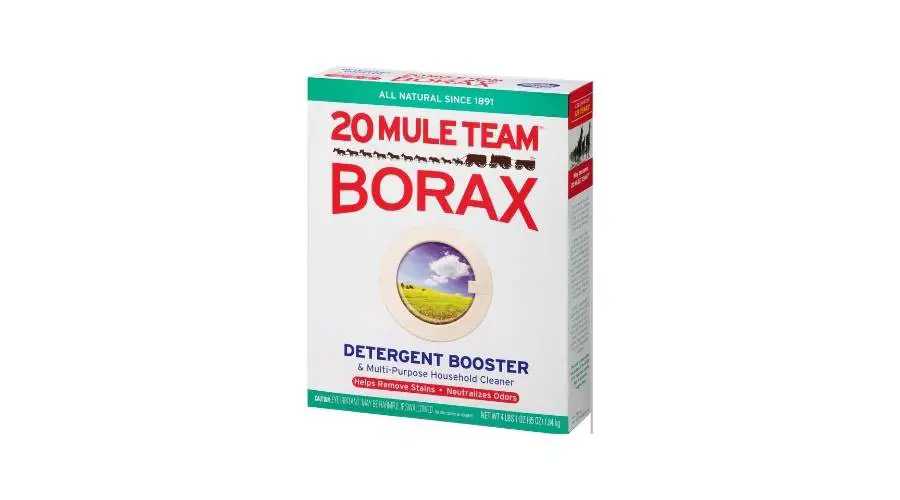
9. Borates (Borax)
Most people know borates by borax powder. One of its most common uses is for laundry, but there are many other uses for borax, including killing insects.
Although borate does not kill bugs instantly, it makes it to where termites ingest it along with cellulose.
The white ants will then take it back and share it with the colonies, making the borax enzymes kill the insects.
You can easily mix boric acid to create a solution and then spray it where the termite colony is. You will need to reapply the solution until the termites are gone.
10. Nematodes
Nematodes, or roundworms, are a natural way to get rid of termites. Mix them in a water solution and spray on the affected soil and other areas within your home.
Once they get finished eating the termites out, they will die, but you need to spray the affected areas every day until they completely die out.
11. Perimeter Barrier
There are quite a few perimeter barriers that you can do to keep termites out of your home. Some of these options include termite insecticides, but you’ll want to use a concrete or rock barrier to keep things natural.
The video above shows how this person dug up a wedge-shaped trench and placed a particle barrier on the side.
This barrier might be one of the cheaper options as you would not have to worry about it messing up in the future. It is wise to check the border once a year to ensure nothing has moved some of the particles.
12. Sunlight
Termites hide in dark areas because they cannot survive sunlight. Take an affected place out into the sun and let nature do the rest of the job using this method.
Let natural sunlight inside your home prevent them from coming in even further.
Note: This method will only work with direct exposure, so using a UV ray light is unwise.
13. Table Salt
As we all know, table salt causes dehydration, whether it allows your food to taste delicious. In that case, it also dehydrates termites.
For this method, you need to fill a jar with a 1:1 ratio of salt and warm water.
Mix it up and make sure the salt completely dissolves. Then, get a syringe and place the salt solution around the entry points near the ground and the soil.
What happens next is self-explanatory, as the termites eventually die off.
Note: Table salt only works with more minor infestations while still in the walls and ceilings.
14. Cayenne Pepper
Cayenne pepper is an excellent choice for many rodent and insect issues inside and outside your home.
This particular pepper is scorching, damaging their nervous system and causing them to eventually die.
Cayenne pepper is a safe remedy to use indoors and is easy to purchase. You can go to your local grocery store or buy it online.
Sprinkle the pepper around areas you know where the termites are and their entry points. It also might be a good idea to sprinkle some on the exterior of your home to deter more from coming in.
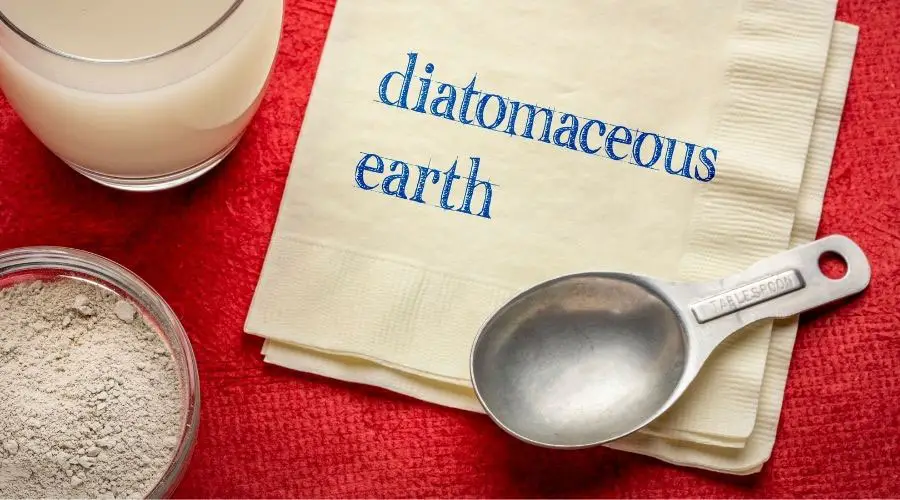
15. Diatomaceous Earth
Diatomaceous earth has tiny, razor-sharp edges, causing the termite exoskeleton to get cut and eventually die off. Diatomaceous earth will likely be your go-to if you have other bug problems.
It is harmless to humans and animals, but make sure you purchase the food grade option in the link above. Buying the filter grade can be harmful to your animals.
On the other hand, use a mask and gloves before sprinkling or spraying it around your home. These preventative measures ensure no dust gets into your lungs and tiny particles go on your hands.
16. Microwaves
Microwaves are an easy solution to eliminate termites, and many professionals use this treatment method.
The best part is that you and your animals do not have to leave your home while the cure goes on.
The heat gets generated by a magnetron mounted on top of a tripod. In doing so, it creates ease of access to walls. In doing so, the microwave penetrates wood structures, which kills the termites.
17. Electrocution
You cannot electrocute termites yourself unless you’re a trained professional. A technician comes in with an electro-gun and places it a few inches from the wood’s surface.
Afterward, the gun sends electricity through the wood, zapping the termites to their doom.
18. Soapy Water
Soapy water is one of the simplest options for making termites disappear. Plus, the items are right there within your home, making things much easier on you.
Soap combined with water makes termites’ exterior shells penetrate, damaging their respiratory system. This method also damages the soft outer shells of their eggs.
19. Flood Them Out
Did you know that, like most living creatures, termites can drown? However, you need to do it for an extended time for it to happen correctly.
Depending on the white ant breed, they can survive underwater for 16 to 30 hours until they eventually die out.
Although this method could be effective, it might not be the best option. You will also need to clean up the mess afterward to prevent more termites from entering your home.
20. Change Your Landscape
Landscaping your home might be the best way to protect your home to make termites go away. If you have a lot of trees, you might be prone to white ants making a pit stop near your home.
Another thing to consider is being vigilant about where you plant something, the materials you use, and paying close attention to what happens on your land.
However, here are some simple ways to keep them from coming back:
- Trim branches away from the house
- Remove old tree stumps
- Maintain a physical barrier (as stated earlier)
- Choose wisely on what mulch you pick. Stove, gravel, tumbled glass, and rubber mulch are all great choices that don’t serve as termite baits.
- Avoid moisture buildup
21. Remove Old Tree Stumps
Removing any stumps around your property will reduce excess food sources for the termites. Still, it will also remove potential colonies from starting, giving you an even higher chance of dealing with an infestation in the long run.
22. Heat Treatment
A certain amount of duality in temperature-based treatments can effectively deal with termites, one hot and the other cold.
Utilizing the heat treatment would require you to heat the internal temperature of your home or the dwelling to a bare minimum of 120 to 140 degrees Fahrenheit for approximately six hours.
Doing so will kill all existing termites and allow you to be termite free after the treatment; like almost any, this method will be handled by pest control professionals.
23. Cold Treatment
Termites are all over the place but much less common in colder areas than tropical ones. Seeing as that is the case, you can use the cooling treatment to kill off termites if you do it right.
You need to chill the infected wood to -20 degrees Fahrenheit for 30 minutes to kill the white ants off. Still, for optimal results, you want to repeat that same six-hour period to ensure all termites have been eradicated.
24. Aloe Vera Plant
Aloe vera is more of a deterrent than anything else, but when you rub it all over your furniture, termites cannot cross it, making them go away from that area. You can also create a solution with aloe and water and spray affected areas.
Can Bleach Kill Termites?
Bleach is highly effective for many solutions, so you might attempt bleach first. However, before you purchase a bunch of gallon-sized bleaches, you should know that it is not effective at removing colonies as you think.
You can use bleach to kill the termites you see visibly, but chances are, there is a massive colony behind the walls or deep underground that you cannot see. It is not the best option for your or your animal’s health.
Different Types of Termites
There are over 2000 known species of termites. The most common are:
- Subterranean termites are found in every state except Alaska. This species lives in subterranean colonies or beneath damp, hidden locations aboveground, with a maximum population of 2 million individuals.
- Formosan termites are the most aggressive and devious termite species known in science. They can cause serious damage to homes when they infest walls, as seen with their intricate colonies.
- Drywood termites infest dry wood and can rapidly spread throughout wooden wall supports, roofs, and other structures. Drywood termites may be found along the Southern United States Atlantic coast from North Carolina through the Gulf Coast to California’s coastal areas.
- Dampwood termites primarily attack timber with high moisture content, particularly in damp locations. Dampwood termites do not commonly infest residential structures since wood has a low moisture content in buildings. They are found on the West Coast and adjacent states, the desert or semi-arid southwest, and southern Florida.
Final Thoughts
Waging war against termites can be a long and arduous battle. Still, with persistence, preparation, and some consultation from a professional, you can form a professional treatment plan to guard your home from termite damage.
It’s an ongoing battle with no guarantee you won’t have another infestation again in the long run, so you must be diligent.
If you have signs of termite infestation, you should contact a professional pest control company in addition to natural treatments to be certain that there is no more active termite infestation.
Get FREE quotes from licensed pest control technicians in your area today. Whether you need a termite inspection or a full treatment, We Can Help! All technicians are screened, licensed, and insured.


